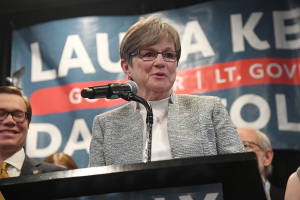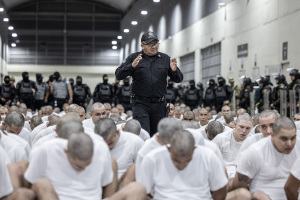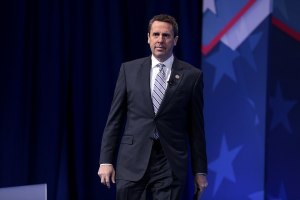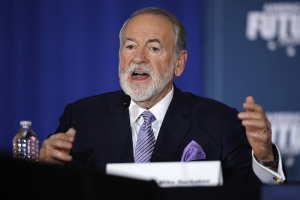National Network of Youth Missions Asks How to Make Short-Term Missions Effective
Leaders from theological seminaries, youth ministries, mission agencies, and missions-minded churches convened to question the effectiveness of short-term mission trips.
ORLANDO, Fla. – Leaders from theological seminaries, youth ministries, mission agencies, and missions-minded churches convened at an annual national forum to ask difficult questions about whether short-term mission trips are effective.
From Jan. 9-11, the National Network of Youth Ministries convened over 80 Christian leaders for the 2006 Youth Missions Forum Network at the Crowne Plaza Hotel in Orlando, Fla.
Each year, one million people go overseas on short-term mission trips, but short-termers who are making converts are not necessarily plugging those new converts into the local church to get discipled. In addition, short-termers are not converting to missionaries.
A short-term mission can be a wide range of activities, from working at an orphanage and teaching the English language to sharing the gospel with people living in garbage slums.
"There are literally hundreds of thousands of students serving on short term mission trips. The question is: ‘How good of a job are we doing?’" asked Daryl Nuss, on staff with National Network of Youth Ministries (NNYM) and coordinator of the event now in its fifth consecutive year. "If we are going to spend the money, time, and resources, we want to do the best job possible."
The problem, Nuss pointed out, is that most Christians believe converting people to Christ is a singular event when it is really a process. Usually, the programs stop short before making an actual impact.
"We've got a million trips, but is it missions?" asked Sherwood Lingenfelter, provost of Fuller Theological Seminary in Pasadena, Calif. "We've made very little significant impact."
Four years ago, NNYM launched the Youth Missions Network to develop a coalition of U.S.-based denominations and organizations involved in international and cross-cultural youth missions to work together on issues that confront the American church and are larger than the scope of any one group. Today, over 75 groups are a part of this coalition.
The special forum hopes to stimulate dialogue about youth mission models. It convenes amid a slew of similar forums in Orlando addressing urban ministry and youth ministry – all organized by NNYM. The network represents close to 20,000 ministries.
During the forum at the Crowne Plaza Hotel, attendants pointed out that most of the students who went on the short-term mission trips don’t commit to long-term missions.
Case in point is Lingenfelter’s short-term missions project in Chad in 1997. The ministry he began didn't spread to the local ministries. And he doesn't know if the Africans they reached for Christ during the trip were ever incorporated into the local church community. In addition, only one out of a team of eight went into long-term missions.
He suggested that more students might have become missionaries if he had only followed up with them after the trip.
"The vision wasn't shared, and that was a mistake," he said. "I was focusing on programs rather than disciples, and when it was done, I thought it was done."
Lingenfelter said he failed to partner with the local initiatives already in place.
"People have a passion and a vision for their own people, but they get no encouragement. They have no resources, and no way to get it,” he said. “I think it's important to partner with what God's already doing, not try to start something on your own. We think we're the Americans and we have all the answers…"
The truth, however, is there are far more Christians in the non-Western world than in the Western world, he pointed out.
"You really need to ask what God is doing already," he added.
The conference also featured Dr. Robert J. Priest, a mission professor from Trinity Divinity School in Deerfield, Ill., who spoke on funding issues; Kurt Ver Beek, an associate professor of sociology from Calvin College in Grand Rapids, Mich., who spoke on the need to prepare the students for the long-haul of missions; and Roger Peterson, Founder of STEM Intl. (Short Term Evangelical Missions), who raised the question, “Are mission trips about mission or are they nice retreats overseas?”
General sessions were followed by break-out sessions, which divided up the participants into three groups – youth pastors, educators, and agencies.
Many said they appreciated the forum, while others did not think it relevant. Almost all were antsy to stop talking and get started on a solution.
"The hope lies in groups like this – where people are talking about the problems and they're going to work on the problems [together]," said Susie Lipps from Texas-based International Impact. "We can talk about these issues and make some changes."
"Unfortunately it seems far too rare we have these kinds of gatherings where we can have informed engagement or thoughtful activism," added Dave Livermore of Grand Rapids Theological Seminary.
Last year, the network's forum produced two fruits – a website that would help everyone stay connected, and a book for youths that go on short term missions trips to fan the flame for God after the trip is over.





























